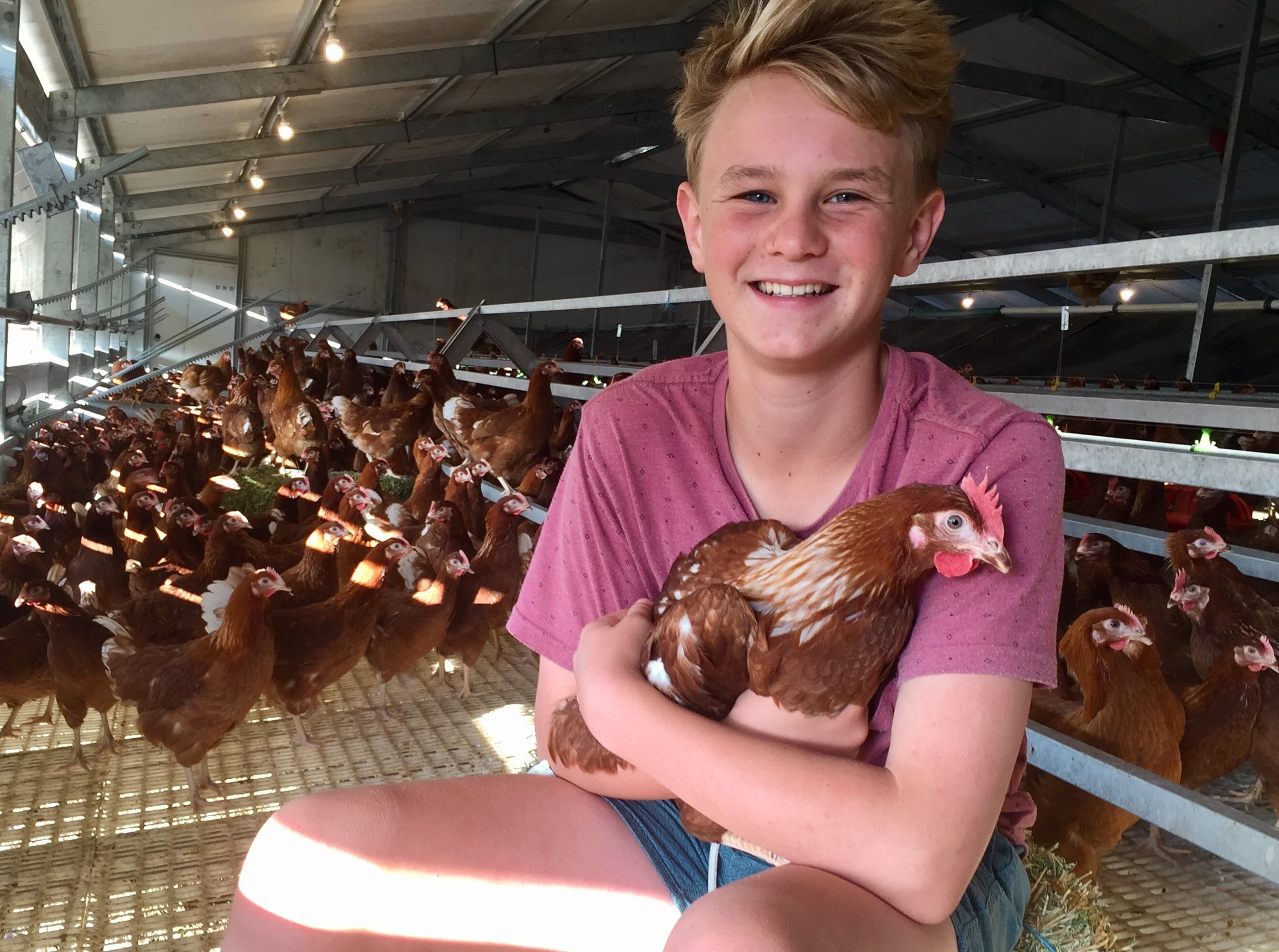In Victoria’s Macedon Ranges, 16-year-old Josh Murray has 9,500 happy hens laying every day for Josh’s Rainbow Eggs. Josh started his business at age nine, looking for extra pocket money, and makes all his business decisions based on what will improve the lives of his chickens and what will make his and his family’s lives easier.
In Dubbo, New South Wales, Robert Riley is the co-owner of a native retail nursery and co-founder, with his brother James, of Indigenous Concepts and Networking (ICaN). The profits from the nursery fund ICaN’s unique programs that help people with training, skills development and long-term employment. Rob is guided by his passion to create opportunities for Indigenous people and makes decisions to ensure the nursery is a commercial success.
In Queensland’s Darling Downs, 24-year-old Jakarta-raised mechanical engineer Ade Ariantika is working as a project engineer for Oakey Beef Exports, overseeing jobs where the budgets range from $20,000 to $3 million. Ade attributes some of her success in making a contribution to her company, and the red meat processing industry, to the diversity of her background and the way it has shaped her approach to decision-making.
I wanted to share with you these examples of age, culture and gender diversity in the agriculture sector not just because they are real, but because they are rare. And also because it is important to talk about the positive impact that diversity has on our rural industries.
Australian agriculture is on the brink of enormous growth and embracing diversity is one way we can make future success a reality.
Recent research by AgriFutures Australia on more than 200 organisations examining ‘diversity in decision-making in rural industries’ showed that only:
- 15 per cent of rural companies have formal diversity strategies,
- 20 per cent of large businesses have appointed people under 30 to decision making roles in the past 2 years,
- 26 per cent of small businesses and 41 per cent of large businesses have appointed females to decision making roles in the past 2 years, and
- 32 per cent of large businesses have appointed people from diverse cultural backgrounds to decision making roles in the past 2 years
More importantly though, what the research showed was that rural industries stand to benefit greatly by increasing diversity. It found that there are real business benefits linked to senior-leadership diversity including increased profitability, productivity and innovation.











